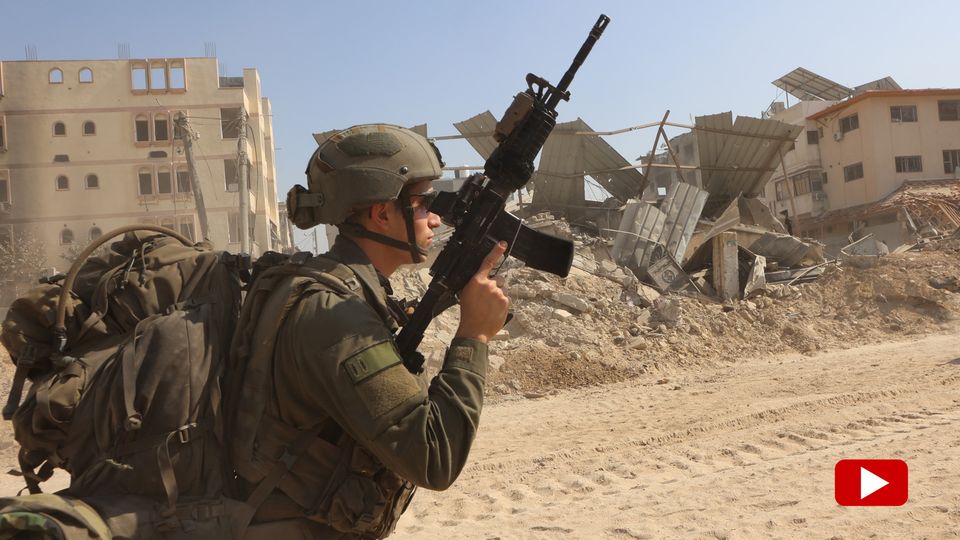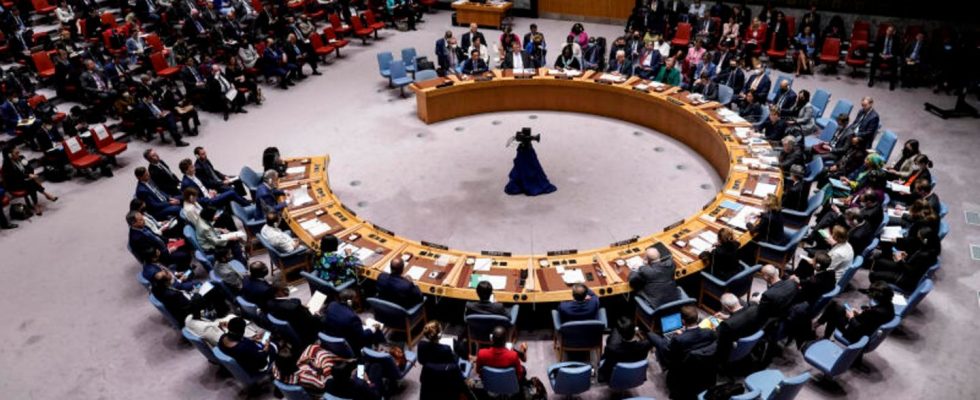United Nations
UN Security Council calls for ceasefire in the Gaza Strip for the first time – Netanyahu reacts indignantly
A resolution in the UN Security Council needs the votes of at least 9 of the 15 member states. In addition, there may be no veto from the permanent members USA, Russia, China, France or Great Britain.
©John Minchillo/AP
Almost six months after the start of the war, the UN Security Council called for an “immediate ceasefire” in the Gaza Strip for the first time. The veto power, the USA, abstained from the vote – which enabled the resolution to be adopted. The Israeli government reacted harshly.
The UN Security Council has called for an “immediate ceasefire” for the first time since the beginning of the war between Israel and the radical Islamic group Hamas. A reaction from Israel was immediate: Prime Minister Benjamin Netanyahu canceled the planned trip of an Israeli delegation to the USA. The head of government’s office announced this on Monday in Jerusalem. The UN resolution was passed in New York on Monday. This was made possible because, in contrast to previous votes on this demand, the USA did not veto this request but abstained from voting. The 14 remaining members of the committee voted in favor. In addition, the most powerful body in the United Nations is demanding the immediate and unconditional release of all hostages held by the Islamist Hamas.
The decision, which is binding under international law, further increases international pressure on the conflict parties Israel and Hamas. However, it is questionable whether or to what extent the resolution will have any influence on decisions made by the Israeli government of Prime Minister Benjamin Netanyahu or Hamas regarding the further course of the war.
Immediately before the vote, Netanyahu had threatened to cancel the planned trip of two of his envoys to Washington at short notice. Israeli Strategic Affairs Minister Ron Dermer and national security adviser Zachi Hanegbi were scheduled to fly to the United States on Monday to meet with senior government officials. They wanted to present the Israeli guests with alternatives to a ground offensive planned by Israel in the southern Gaza city of Rafah, which was rejected by the USA and other allies. Another topic of the talks would have been Washington’s proposals for expanding humanitarian aid for the suffering population in the Gaza Strip.
The USA had previously blocked the resolution in the UN Security Council
Efforts to get the UN Security Council to call for a ceasefire have so far failed, mainly due to resistance from the veto power, the USA. Since the war began in October last year, Washington, Israel’s closest ally, has opposed a ceasefire and vetoed resolutions three times. At best, US representatives called for shorter “ceasefires”.
In view of the increasing number of civilian casualties and the threat of famine in parts of the sealed-off coastal strip, the USA has recently increased the pressure on Israel. US President Joe Biden has also become increasingly critical, for example with regard to Israel’s planned ground offensive in the city of Rafah in the south of the Gaza Strip. Hundreds of thousands of internally displaced people have sought protection from the fighting there. On Friday, Washington made a U-turn and called for the first time in a resolution “an immediate and permanent ceasefire” in the Gaza war. But Russia and China vetoed it. The draft resolution did not go far enough for Moscow and Beijing – in their eyes, the text was, among other things, too pro-Israel and not sufficiently binding in places.

Call for an “immediate ceasefire” in the Gaza Strip for Ramadan
The brief text of the resolution that has now been adopted focuses on the demand for “an immediate ceasefire for the (Islamic fasting month) of Ramadan, respected by all sides.” This should lead to a “permanent and sustainable ceasefire,” the text said. The draft resolution also calls for the immediate and unconditional release of all hostages and emphasizes the “great concern given the catastrophic humanitarian situation in the Gaza Strip.” Aid deliveries to the civilian population must be expanded.
The resolution was introduced by non-permanent members of the UN body. A first planned vote on Saturday was postponed at short notice in order to gain more time for negotiations. A diplomat explained in advance that intensive negotiations had taken place, particularly with the USA.
A resolution in the UN Security Council needs the votes of at least 9 of the 15 member states. In addition, there may be no veto from the permanent members USA, Russia, China, France or Great Britain. Security Council decisions are binding under international law. If an affected state ignores them, the body can impose sanctions – which is not seen as likely in the case of Israel because of the US’s veto power.
Ramadan began around March 10th. Hopes that there could be an agreement between the conflicting parties on a ceasefire and the further release of hostages by the beginning of the fasting month were not fulfilled.
The Gaza war was triggered by the unprecedented massacre with more than 1,200 deaths that terrorists from Hamas and other groups carried out in Israel on October 7th.

